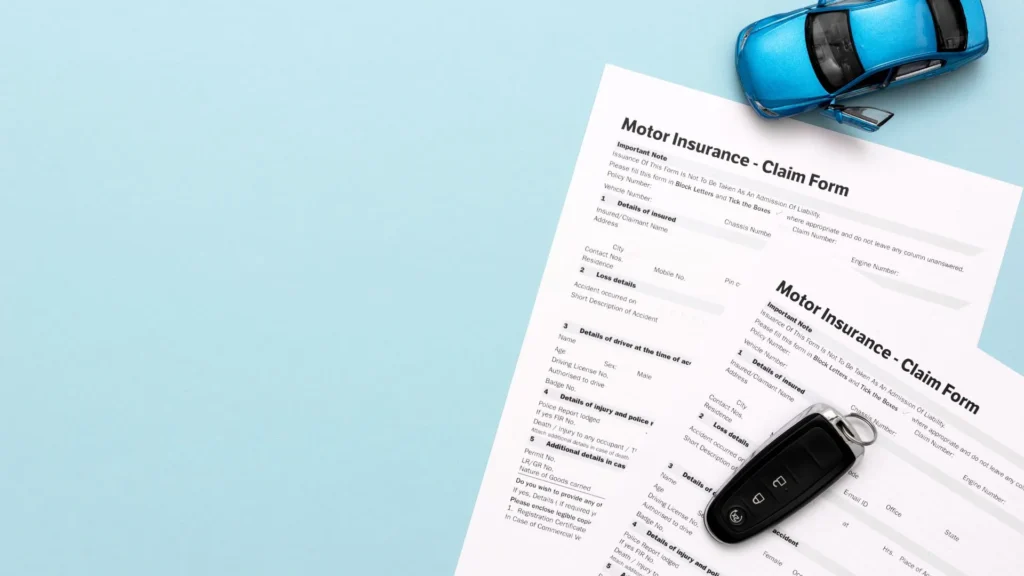If you use your car primarily for work, you can deduct the car insurance cost while filing your taxes. Armed forces reserve members, qualified performers, and fee-based state or local politicians may also be able to deduct the cost of their motor insurance while filing their taxes in 2023.
However, if you use your vehicle only for personal purposes, you may not be eligible for tax deductible. Car insurance is not typically known as a choice for tax savings for people who don’t use a car for business purposes.
If you use your car for personal requirements, you cannot use the premiums as a tax deductible. Use Beem to compare the best car insurance quotes from different providers and save hundreds of dollars every year.
Is Your Car Insurance Tax Deductible?
Do you wonder if you can write off your car insurance premiums? It is a common question during tax season. You can write off your car insurance if you fit into a few particular driver profiles.
Tax deductions for auto insurance may be available to business owners and self-employed taxpayers. Auto insurance is regarded as a business expense and is deductible from taxes.
Business owners and self-employed people are eligible to deduct their auto insurance premiums on their tax returns. But if the vehicle is used for personal use, car insurance is not tax deductible. Ask yourself a few of the critical questions while deciding to write off your car insurance premium or any deductibles you pay throughout the year:
- You should identify how you use your vehicle. To write it off, the car must be used only for business-related purposes.
- It is always wise to record the mileage used for business-related purposes. You can also use the standard deduction set by the IRS.
- If you use the same car for work and personal use, you should keep track of all the monthly costs.
- During tax season, complete and submit the appropriate forms to the IRS.
When is Your Car Insurance Tax Deductible?
Now you know that you can deduct auto insurance premiums, but how?
If you use your car only for business purposes, there is no need to keep any records. But, there are a lot of people who use cars for both business as well as personal use.
If you are using your car for personal and professional use, you may need to divide the deduction into business and personal usage.
For example, if you use your car 80% of the time for business purposes and the remaining 20% for personal use, you can deduct the tax for that 80% of business use as business expense. One of two tax forms will be used to record your expenses.
If you work for yourself, you’ll include the details on Schedule C. Use Form 2106 for the other scenarios.
Separating personal from professional use
To avoid confusion and last-minute dilemmas, keeping your personal and professional car use separate is always better. If you use your car for both business and pleasure, you may only be able to get tax deductibles for the time it is used for business.
Let’s say, an Uber driver uses his car for a family picnic. Then they may not be liable to claim tax deductible for that personal use.
Let us see another example: 25% of the time, you use your car for work as a rideshare driver, and the rest 75% for personal travel. So now, If you choose to deduct your actual expenses rather than the standard deduction, you can only claim 25% of the cost of the insurance premium on your taxes in this situation.
Also Know about : How to get a good deal on a used car
Is Car Insurance Tax Deductible for a Self-Employed Person?
Yes, your car insurance can be tax-deductible if you are self-employed. But remember, this doesn’t include your daily commute to the office. Your car insurance expenses should be linked to work-related places you visit to claim this deduction.
It doesn’t matter if you don’t drive many miles to meet clients or attend meetings; as long as your car serves work purposes and you keep an accurate mileage record, you’re good.
The deductible you pay when you file an insurance claim isn’t tax-deductible. It’s seen as a personal expense, not a tax benefit. There’s one exception, though. You’re exempt from this rule if you face property loss due to a federal disaster.
So, keep that in mind when you’re looking at your car insurance and taxes. Use Beem to file your Federal and State taxes without hassle and free of cost, regardless of your filing status.

Other Expenses That Qualify for Car Insurance Tax Deductions
If you use your car for work, there are other vehicle expenses that you can deduct in addition to auto insurance. Maintenance and fuel are other expenses you can deduct. Here is a list of other expenses that may qualify for a car insurance tax deduction.
- Parking
- Tolls
- Gas
- Tires
- Repairs
- Lease obligations
Is Car Insurance Tax Deductible for a Personal Use Car?
You cannot deduct car insurance tax when using a car strictly for personal use only. However, if there is even a slight amount of use for business-related purposes, you can remove car insurance for that period.
There are strict rules for filing a write-off for insurance tax deductibles; personal pleasure cars are strictly prohibited from deducting tax insurance. As long as the person using the vehicle is not an armed forced reserve or a qualified performing artist, they can not deduct car insurance tax.
Who is Eligible for a Car Insurance Tax Deduction?
In the United States, personal use vehicle insurance is not tax deductible. There are some noteworthy exceptions where tax insurance deductions may be applied. You may be qualified for a tax deduction for car insurance in the following circumstances:
Business-related use of a vehicle: Your car insurance expense counts as a business expense if you use your car for your business purposes.
If you have a record of how much you have used your car for business, you may be eligible for auto insurance tax deductible. Remember to keep proof of your usage ready while claiming your deductible.
Accident or theft loss: If you meet with an accident or if your car is stolen and your insurance provider does not cover the loss, you may be able to deduct insurance tax as casualty loss or theft loss on your tax return.
Medical expenses: You may wonder if you can get car insurance tax deductible as part of your medical expenses if you itemize your deductions on your federal income tax return and have significant medical expenses, including costs associated with the use of a car for medical purposes (such as transportation to medical appointments). However, there are restrictions and requirements for this deduction.
Certain employees: If you are an employee who must use your vehicle for work-related purposes, and if your employer does not reimburse you for these costs, you may be able to deduct your car expenses, including insurance. Unreimbursed employee expenses fall under the category of deductions subject to limitations and restrictions.
How to File for Tax Deductions for Auto Insurance
Distinguish any personal usage: Keep track of the percentage of your driving for work if your car isn’t used exclusively for that. Consider that 70% of your time drives customers around for a ridesharing company. In that situation, you can recover up to 70% of your auto insurance costs.
Tracking distance: Count every mile you drive in your car—for business and pleasure—if you want to claim tax deductions. Every time you travel, track the starting and ending distances and make notes about the itinerary. Apps that track your miles are practical tools.
Keep receipts: It is always a good idea to save receipts for all automotive-related business expenses, such as petrol and maintenance. It isn’t just great for budgeting, but it is also helpful for you to get car insurance tax deductibles when filing your taxes. You will need this documentation.
Maintain your records: Keep your documents handy. You may need them while filling out your car insurance tax deductible. Any documentation related to your last three years of driving history is crucial. You might need them to defend your deductions from earlier tax years.
People Also Read: What Is the Cheapest Car to Insure
Conclusion
It’s crucial to remember that car insurance tax deductible laws are subject to change. Your eligibility for deductions may change depending on your unique situation and the specific tax regulations in your state.
Therefore, it is advised to speak with a tax expert or accountant who can advise you based on your specific circumstances and the tax laws in force when your tax return is filed. It would help you keep updated on the most recent rules and regulations with the relevant tax authorities.
Check out Beem’s online comparison tool to find the car insurance best suited to your needs and get up to 40% off on your coverage.





























